#AutomotiveIndustry
Japan Tweaks Rules Regarding Foreign Investments
Japan released a list of companies subject to new foreign-ownership rules on Friday, with automakers included in the document. The adjustment influences how outside investment will be handled in regard to business sectors crucial to national security by the nation’s Ministry of Finance.
Foreign outfits buying a stake of 1 percent (or more) in Japanese companies will now face a pre-screening process to ensure they’re not a threat. The old benchmark for such action was set at a substantially higher 10 percent.
While the language used in the document isn’t targeted and largely pertains to additional scrutiny in the general sense, this has everything to do with China. It also mimics measures taken in the United States and Europe to avoid further instances of intellectual property theft (or simply having sensitive information leaked to the Chinese Communist Party). It’s still risky, however, as about a third of Japanese stock is owned by investors from outside its borders. Meanwhile, the nation is hoping to ramp up investment to boost its economy.
Ford's Farley Buys Up $1 Million in Company Stock
Ford Motor Company COO Jim Farley has purchased $1 million of stock in the company he works for as a sign of faith that the Blue Oval can and will recover. You might recall Farley from his recent promotion, one resulting from a March management shakeup that forced Ford’s former head of automotive Joe Hinrichs out of the company. That situation ruffled a few feathers, but it’s ancient history now, considering what landed on Ford’s plate later in the month.
The automaker went into the coronavirus pandemic in the midst of a comprehensive and costly restructuring campaign. Government-mandated lockdowns soon stymied the economy, negatively influencing Ford’s share price. Plenty of automakers find themselves in similar situations, creating an impetus to further walk back mobility claims they were all betting on — or, more accurately, getting Wall Street to bet on.
Elon Musk Selling Earthly Possessions, Gets Yelled at Online
Tesla CEO Elon Musk has had an interesting few days. It all kicked off when he went off on the politics behind coronavirus lockdowns — suggesting that state mandates had surpassed what should be deemed reasonable and that civil liberties were being infringed upon — during Wednesday’s earnings call. By week’s end, he was using social media to announce Tesla’s stock price was too high.
Despite it not being his first time making such a claim, and with the automaker turning a surprise first-quarter profit, the company’s share price still lost 10 percent in a single day. Musk then announced he would sell practically everything he owned. Initially, it seemed to be another partial joke taken completely literally by some followers and the media. But Musk began making good on the claim, listing two properties over the weekend.
Suppliers to Michigan: Production Delays Are Bad for Business
The Motor & Equipment Manufacturers Association (MEMA) and Original Equipment Suppliers Association (OESA) have issued a letter to Michigan Governor Gretchen Whitmer saying they’re ready to start delivering components to manufacturers.
Despite Detroit automakers signaling a readiness to resume production, Whitmer has extended stay-at-home orders through May 15th — lifting some earlier restrictions on business and travel. However, the automotive industry still doesn’t have an official date to get things moving again, just a series of business plans outlining a gradual ramping up of production once lockdown mandates end.
Suppliers say that isn’t good enough. They want a clear-cut pathway toward industrial redemption.
Lincoln-Rivian EV Project Cancelled
Rivian and Ford Motor Co. are nixing plans to deliver a jointly developed Lincoln EV. Despite Lincoln President Joy Falotico saying the model would deliver one of the most tranquil and luxurious driving experiences on the planet back in January, Lincoln told dealers on Tuesday that development would be scrapped.
Ford invested $500 million in Rivian last year. The collaborative project was intended to deliver a high-end, battery driven vehicle built on the “skateboard” platform underpinning Rivian’s R1T pickup and R1S SUV. Had the project not been taken behind the shed and shot this week, an assumed mid-size Lincoln crossover would have arrived in 2022.
Strange Bedfellows: American EV Company Partners With China's Hongqi
World leaders like to travel in comfort, security, and style — which is why you never see presidential motorcades formed around a Nissan Versa. Instead, security details crowd around something big, black, and closely tied to a domestic nameplate if the nation in question has such a manufacturer. In China, the preferred choice among high-ranking government officials has been FAW Group’s Hongqi luxury brand. Translated into English, the name means “Red Flag” and it’s the pride of China, even though the bulk of FAW’s premium models are a redux of various automotive products produced by foreign manufacturers.
That includes Hongqi’s first vehicle, the CA72. Launched in 1958 as a model exclusive to state institutions and the leadership of the Communist Party of China, the CA72 was basically a 1955 Chrysler sedan with a different grille. While that model line has had its own evolution, subsequent FAW products from the modern era benefited from joint partnerships with automakers like Mazda, General Motors, Toyota, and Audi.
A new joint venture specifically targeting Hongqi is now underway, and its a curious one. An American electric vehicle startup named SilkEV is apparently teaming up with the brand that symbolizes the CCP to produce high-end performance cars, and they’re spending a bundle to do so.
Hunt Ends: American Center for Mobility Names New CEO
Following a nearly six-month search for new leadership, the American Center for Mobility (ACM) has named Reuben Sarkar as its new CEO. The Michigan-based facility has been without a chief executive since Michael Noblett left in November of 2019, leaving COO Mark Chaput in charge while the company hunted for a replacement.
It found one with Sarkar. He’s positioned to assume his new role at the historic site (Willow Run) that manufactured B-24 bombers in World War II before transitioning to GM vehicles and eventually the testing of autonomous cars, in early May. But this isn’t one of those cushy CEO positions where one can sit back and enjoy a sizable annual bonus. Intellectual property conflicts, legal hazards, and a longer-than-presumed development timelines have stagnated the self-driving industry. Mr. Sarkar is going to have his work cut out for him — though we’re sure he’ll still be well paid.
Nissan Temporarily Shutters Global Headquarters, Japanese Factories
Nissan said Tuesday that it plans to temporarily shut down its global headquarters and several factories in Japan to help curtail the spread of the novel coronavirus. While Japanese automakers are legally allowed to operate within the country (with conditions), most have instituted some amount of health countermeasures independently. The nation has also formed a joint council for automakers and component suppliers to work with the government in maintaining supply chains while avoiding future contagion risks.
Despite the level of precautions taken, the country’s automakers are still estimated to lose at least $1.6 billion as the pandemic suppresses demand around the world. Nissan, which issued profit warnings in 2019, went into 2020 expecting to eliminate thousands of positions so it could begin amassing $4.4 billion in savings by 2023. Marketing budgets and product lineups would also need to be rejiggered dramatically to assure profitability moving forward. With the coronavirus further complicating the company’s strategy, May’s idling could be about more than just containing the coronavirus.
Report: Subprime Buyers Not Paying Auto Loans
As the resulting complications of coronavirus lockdowns obliterate the economy, reports have emerged that subprime car buyers are beginning to skip payments. Delinquencies were expected to come up a bit this year, even before local governments started issuing lockdown orders, but the swift economic impact of these health initiatives have proven wider-reaching than anyone anticipated.
Normally, the status of the more volatile subprime market is a useful tool in assessing the financial well-being of the country as a whole — sort of an early warning device for economists. However, getting an accurate read on who stopped paying could be hard during the pandemic. Many lenders are offering deferral programs to keep one or two delinquent payments from turning into full-blown defaults. Still, the initial signs are about what you’d expect, and it plants another economic red flag into American soil.
Auto Sales Officially Considered 'Essential Service' by U.S. Government
Updated social distancing guidance released by the Department of Homeland Security’s Cybersecurity and Infrastructure Security Agency (CISA) on Friday indicates the automotive industry is now an essential business.
Version 3.0 (for those keeping count) of what constitutes “essential critical infrastructure workers” added a number of job descriptions as the federal government mulls how to restart the U.S. economy. Among them is pretty much every job related to automotive manufacturing and sales.
Will China Help Volkswagen Out of This Hole?
Volkswagen Group has announced that its sales declined 23 percent against the previous year, to 2 million deliveries, from January through March of this year. Based upon last week’s assessment of the ailing European market, the region seems to have contributed quite a bit to VW’s downfall. However, the company said it is optimistic that the Chinese market will soon recover as the coronavirus pandemic loses strength in the region.
As the manufacturer’s largest market, Volkswagen has a lot riding on China coming out of this in once piece. There certainly have been a surplus of articles claiming the nation is on the fast track to economic restoration, but we’ve also heard enough conflicting reports on the status of its convalescence that it’s difficult to feel confident of anything. What exactly is in store for VW and other automakers doing business in China?
Volkswagen Wants to Make Coronavirus Car Buying Less Terrifying
Volkswagen has decided to waive up to six months of payments for customers who lost their jobs due to the economic complications of the coronavirus pandemic. Of course, there’s a catch. Customers have to qualify for VW’s expansion of its “Community-Driven Promise” and must have recently purchased a new vehicle, though avenues exist to help existing customers who aren’t brazen enough to buy a new car after a viral outbreak.
The manufacturer previously said it would defer payments up to 90 days for existing Volkswagen Credit (VCI) customers affected by the economic crisis. While most automakers are trying to sweeten the pot while demand is down, deals and relief packages have rolled out pretty gradually. By contrast, VW seems to be doing quite a bit all at once — here’s how one goes about getting into those programs.
Ford's Wristband Solution: Assembly Lines After the Pandemic
Ford is experimenting with social-distancing wristbands as a way to mitigate the spread of the novel coronavirus once factories reopen. In recent weeks, the company has tested various preventative measures at facilities where it swapped from building cars to producing ventilators and respirators to supply hospitals amid the health crisis. While much of that effort revolved around good hygiene practices and the addition of sanitizing stations near assembly areas, Ford also experimented with some outside-the-box ideas.
Workers are now required to complete daily health questionnaires about how they feel and who they’ve been in contact with. But that’s just the start. Most automotive manufacturers are trying to establish a framework allowing employees to return to work without risking secondary outbreaks. For Ford, that means testing dozens of options while factories remain shuttered so the most-useful strategy can be implemented as things return to normal.
What counts as “normal” in this not-distant future sounds like it will be very different than what would have qualified before the pandemic.
Will Trump's Fuel Economy Rollback Cost Jobs?
Center-left political/culture magazine The Atlantic dropped an interesting piece onto the Web Tuesday. In it, author Robinson Meyer lays out a case, based in part on the Trump administration’s own writings, that the fuel economy rollback approved in late March will actually cost jobs and reduce the amount Americans drive.
Meyer piggybacks off his previous reporting, suggesting the Department of Transportation froze out the Environmental Protection Agency and the state of California while working on the rollback. He further suggests, by citing passages from the 2,000-page report the administration prepared on the rollback (officially dubbed Safer Affordable Fuel Efficient Vehicles, or SAFE), that 13,500 automotive-related jobs will be lost.
Renault Ends Chinese Partnership, Looks for a New Start
With the rippling economic effects of the coronavirus outbreak starting to take hold, some industry analysts have begun floating the increasingly popular theory that various markets could stage a retreat from China. While the Chinese Communist Party’s mishandling of the pandemic — including cover-ups (and the possible manipulation of the World Health Organization) that ultimately encouraged the virus’ spread — are often cited as the impetus for the change, the actual decisions will be largely economic. COVID-19 threatens countless nations’ financial welfare as it simultaneously disrupts global supply chains.
The virus has also sent the auto industry into a holding pattern as manufacturers and suppliers hemorrhage money. While the assumption exists that this situation could encourage international automakers to refocus on domestic production, there haven’t been many examples to point to. Renault changed that this week, announcing plans to abandon its joint venture with China’s Dongfeng Motor Corporation. The move, however, may have less to do with the presumed industrial exodus than the company’s general financial situation.




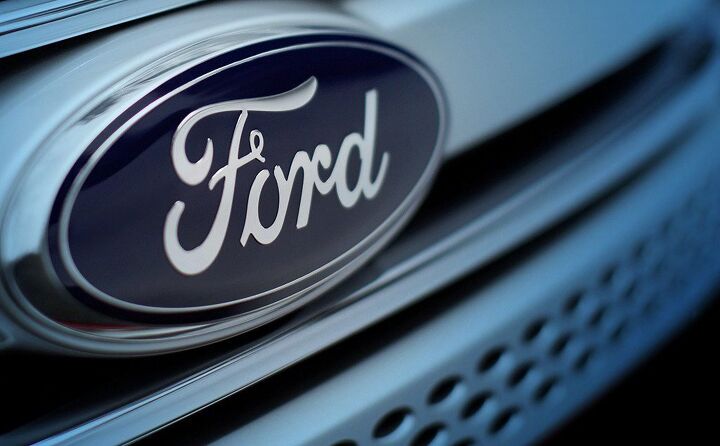



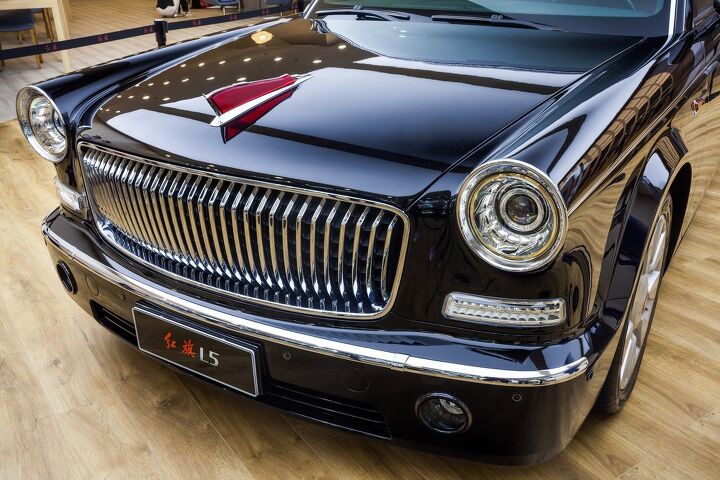



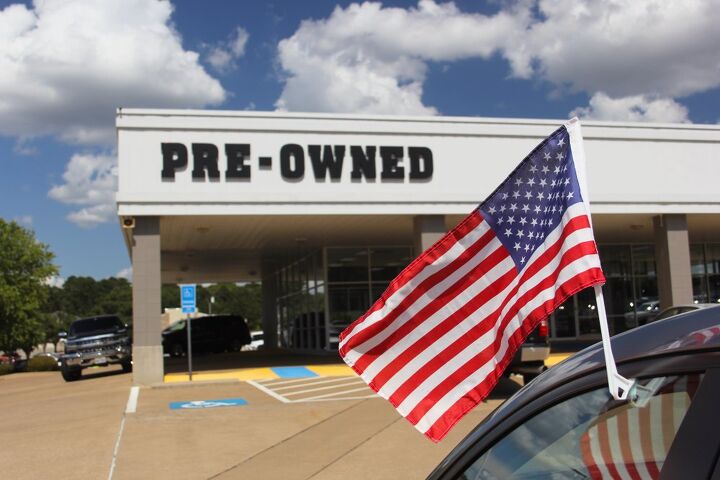
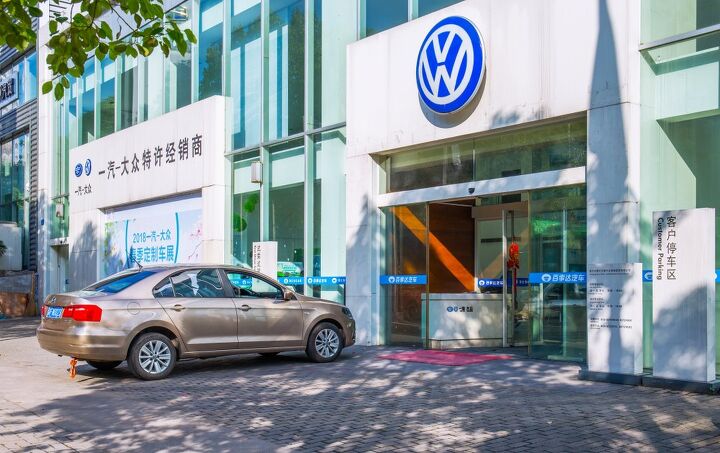


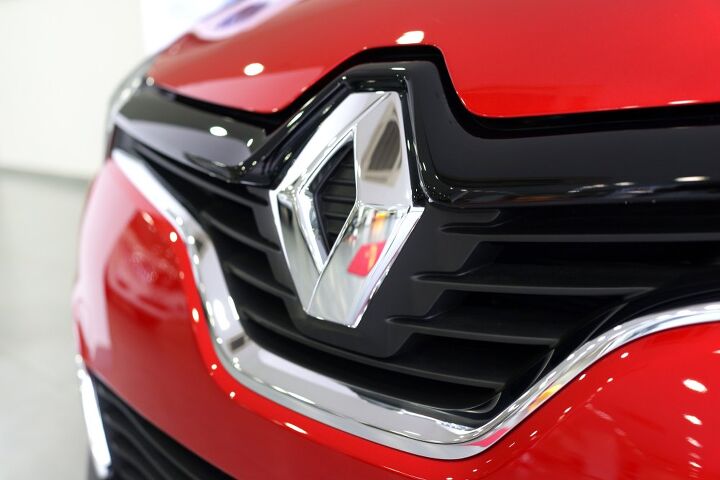












Recent Comments